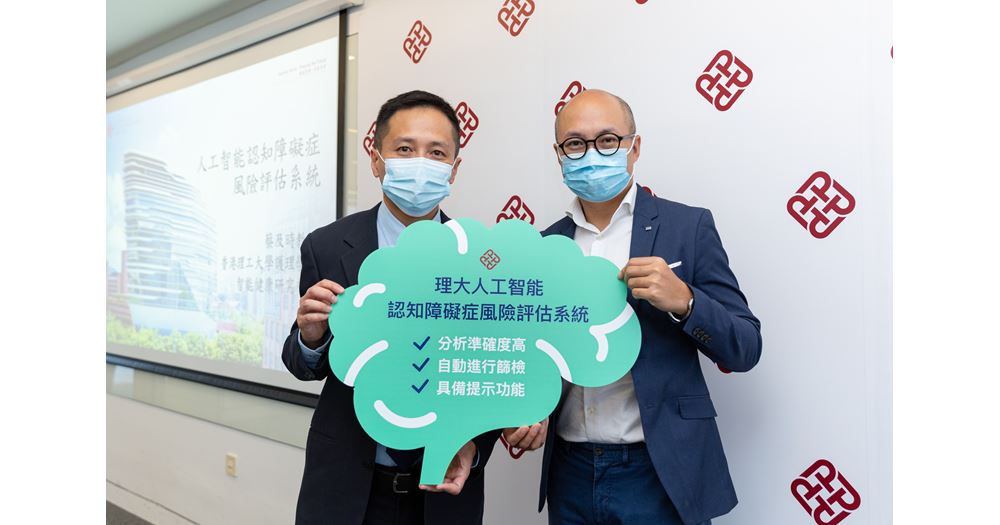Dr Thomas Choi, Professor, (Principle Investigator) and his team* announced to the public the development of an artificial intelligence (AI) system that automates the assessment of the risk of dementia with an average precision of up to 88% at a press conference held in May. Prof Choi and Dr Xiao Shen, (Postdoctoral Fellow, left the School in 2021) a key developer of the AI algorithm, have applied a patent for the system in the United States.
Currently about 35% of dementia cases are attributed to risk factors, such as hypertension, obesity, depression, and smoking. Dementia risk is also associated with many non-cognitive conditions, such as cardiovascular conditions, nutrition, mobility, and depression. Early detection of people with high risk of dementia enables early modification of lifestyle, timely diagnosis and intervention.
Health care professionals around the globe commonly use the Mini-Mental State Examination (MMSE), a cognitive screening tool to identify people with cognitive impairment, however, it has some limitations. Using the MMSE at the asymptomatic stage of dementia or repeated use of the questionnaire may lead to a “practice effect” that degrades its effectiveness.
Supported by HK$ 3.2 million from the Innovation and Technology Fund, Innovation and Technology Commission (ITC) of the HK Government, the research team has developed an AI assessment system that uses health data of older adults, which are routinely and vastly obtained from elderly care facilities or community centers to detect dementia risk.
From 2008 to 2018, the team collected basic profile and health data (including age, gender, blood pressure, teeth condition and nutritional assessment) from over 2,000 older adults, who were aged 77 on average for the AI assessment. The average precision of AI screening of dementia reached 88%. This reliable tool makes early detection of cognitive impairment and prediction of high-risk dementia cases at the asymptomatic stage possible. It also facilitates follow-up or a detailed diagnosis by healthcare professionals.
Dr Rick Kwan, said, ‘We used the existing data for predicting the risk of dementia, which was probably a new approach. After seeking their clients’ consent, staff of the participating community centres for older adults can upload the health data of their clients (the research participants) to the system to get the assessment results.’
According to Prof. Choi, the research team is planning to apply the Public Sector Trial Scheme under the ITC and use the funding for developing the AI system for implementing in local elderly service centres as well as conducting more trials to further test its effectiveness.
*Team members: Dr Rick Kwan, PolyU’s School of Nursing; Dr Xiao Shen, Associate Professor of the School of Computer Science and Technology at Hainan University, Mainland China (She obtained a PhD degree at PolyU’s Department of Computing in 2019); Dr Guanjin Wang, Lecturer in information technology, Murdoch University, Western Australia, Australia (She obtained a joint PhD degree from PolyU and University of Technology Sydney in 2018. Dr Thomas Choi was her chief supervisor during her PhD study).
Press Contacts
Miss Helen Hsu
Communications Manager, School of Nursing
- (852) 2766 4129
- helen.hsu@polyu.edu.hk





